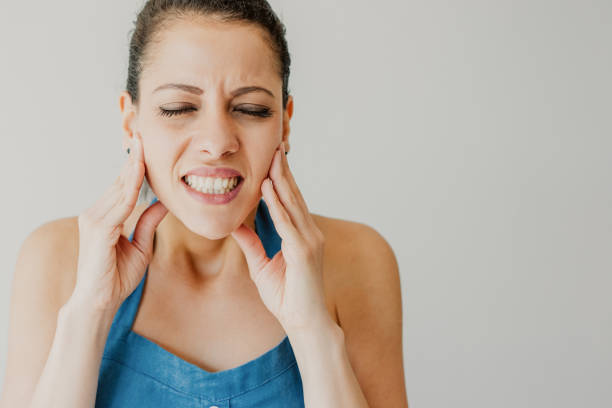
The Relationship Between Bruxism and TMJ
Share

A common question we receive from customers and social media followers relates to TMJ – namely, will ClearClub's dental guards help treat the condition. To address this, it's best to understand the relationship between bruxism and TMJ.
Temporomandibular joint disorder, otherwise known as TMJ, and bruxism are two separate conditions that can exist independently of one another. In some patients, however, they present together and can sometimes cause or exacerbate one another.
 As we noted in our previous blog on bruxism, the grinding and clenching of teeth can occur during the day (often brought on by stress factors) or at night, unconsciously. The symptoms are easy to spot and your dentist can consult with you on this; they include:
As we noted in our previous blog on bruxism, the grinding and clenching of teeth can occur during the day (often brought on by stress factors) or at night, unconsciously. The symptoms are easy to spot and your dentist can consult with you on this; they include:
- Abnormal teeth wear and chipped teeth.
- Sensitive teeth caused by enamel wear.
- Pain and tension in the jaw and ears.
Beyond the damage to your teeth, bruxism can on its own cause pain in the area near your mandibular joint, where the mandible (jaw) bone connects to your skull. Though it presents very similarly to TMJ, it is not quite the same condition.
 TMJ disorder is specific to the joint in question and often affects the surrounding muscles, as well. It can be caused by arthritis, an injury, or even genetics.
TMJ disorder is specific to the joint in question and often affects the surrounding muscles, as well. It can be caused by arthritis, an injury, or even genetics.
Some symptoms of TMJ disorder are similar to those of bruxism. They include:
- Pain in the jaw, ears or face.
- Pain or tension in neck or shoulders.
- A clicking noise, popping sensation or locking of the jaw.
- Constant headaches.
- Teeth grinding.
It comes as no surprise, then, that many patients suffer from both conditions. On the other hand some individuals with habitual bruxism never develop TMJ, and vice versa.
We strongly recommend anyone who experiences symptoms of bruxism or TMJ to visit a dentist who is trained in the aspects of both conditions to properly diagnose them. If you have been diagnosed and are seeking a great low-cost option for quality dental guards, then ClearClub can help.

ClearClub's lightweight, hard acrylic guards are made to withstand grinding and clenching, and the soft inner layer is so comfortable you may even forget you are wearing it. Many of our customers who also suffer from TMJ have noted that the guards are useful for alleviating pain symptoms, however we do still recommend seeing a dentist or physician in order to receive a full treatment plan for this condition.
If you have any other questions about ClearClub's dental guards, please contact us! Otherwise, if you're ready to try us out, use the button below or check out our product page for renewal options – your teeth will thank you!
